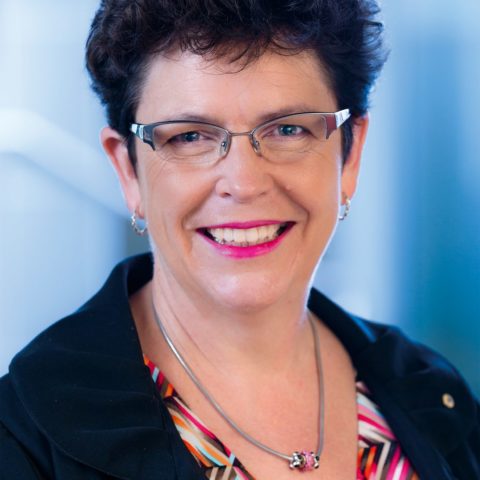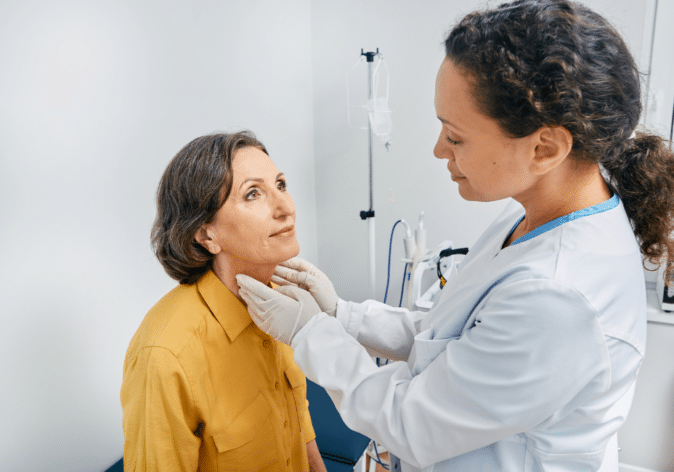The TAILORx Results
TAILORx clinical trial results show no benefit from chemotherapy for women with hormone receptor (HR) positive, HER2 negative, axillary lymph node-negative breast cancer. More than 10,000 women participated in this study from six countries including Australia and New Zealand. In this interview, Dr Norman Swan of ABC Radio National’s Health Report speaks with BCT’s Professor Fran Boyle about which breast cancer patients may benefit from these results.
Interview Transcript
FB: It’s a very exciting day!
NS: It is! What proportion of women can now escape chemotherapy?
FB: I think chemotherapy is fantastic if you need it and it’s fantastic if it’s going to work for you, but if it isn’t then it’s absolutely something to be avoided. We think that the group of people we’re looking at here are people with what we call an intermediate risk cancer, not a really high-risk cancer, not a really low-risk cancer, but that grey zone or the ones where you sit on the fence and ponder. What’s fantastic is that additional information can help you work out who really is going to benefit.
NS: Let’s talk about that. Breast cancer has changed enormously and has turned breast cancer into a chronic disease rather than a fatal one for many, many women. But you do all these tests on women so describe the sort of breast cancer these women had in this trial before you get on to the test itself.
FB: So these would be women who’ve had surgery to remove a lump or a mastectomy, they’ve had some lymph nodes sampled under the arm, and they’ve had some standard pathology tests that we do all around the country. So they’ve got hormonal breast cancer which you can tell from staining the slides.
NS: So they’ve got receptors, lock and key mechanisms for oestrogen and progesterone?
FB: That’s exactly right. Some of the growth of the cancer is being driven by oestrogen. We know that hormone blocking drugs are very helpful for that group of women, so that’s a standard test we would do here. It also is the kind of cancer that doesn’t need Herceptin because it doesn’t have that extra lock and key of the HER2, and it isn’t in the lymph nodes. So this is actually a pretty common kind of breast cancer we would pick up, particularly in older women who are in the screening age groups and are having breast screens, so their cancers are picked up at that earlier stage.
NS: So what is this test?
FB: The test takes a piece of that pathology sample, in our case sends it to America, and additional genes are looked at which are not the inherited breast cancer genes, so not the ones that tell you if you got it from your granny and your auntie, but the ones that are actually mutated in the cancer that are associated with growth and spread. The test can come back with more or less three kinds of answers. One – low risk, don’t worry about it.
NS: When you say low risk, you mean low risk of recurrence or spread?
FB: That’s right. Number two can come back with yes, up to a 30% risk of recurrence or spread, so we call that a high risk. And then there’s the fuzzy zone in the middle of the intermediate risk, and that’s the group of people who are involved in this clinical trial that is called the TAILORx trial.
NS: The practice up until now has been if you’ve come back on this 21-gene test ‘low risk’, you haven’t been given chemotherapy?
FB: That’s right, those are people with a very hormonal cancer (which is) not growing quickly, so hormone blocking treatment should be enough to keep them safe.
NS: So what did they find in this mid range?
FB: What they found in the mid range was that modern chemotherapy of the sort that we would give here did not have an extra benefit over modern hormone blocking treatments.
NS: Like Tamoxifen?
FB: Younger women – Tamoxifen. Older women – what we call aromatase inhibitors, so some of the newer hormone-blocking drugs and these women were doing well without chemotherapy. The half of the group who got chemotherapy actually weren’t doing any better but were, of course, having more side effects. In that circumstance, it would be a very good thing not to offer them chemotherapy. The high-risk group, yes they benefit, and usually, you can work that out from other features of the cancer.
NS: But women 50 years or under seem to benefit from the chemotherapy?
FB: It’s that younger group where chemotherapy probably has an additional hormone-blocking effect. So if you’ve got a very hormonal cancer and you’re younger, chemotherapy doesn’t just work killing cells directly, it also knocks off cells in the ovary, and that reduces the amount of oestrogen around. So from lots of other trials we’ve done, we know that extra hormone-blocking effect can be beneficial, so it isn’t clear at this point what percentage of those younger women had their periods stop, and that would be good to know.
NS: So just to be clear, the women stay on a hormone blocker but they don’t need chemo. Then there’s this debate about women 50 years or younger. For a woman whose listening to this and she’s in the middle of chemotherapy for breast cancer, and it sounds as if she fits it, should she stop? Should she talk to her oncologist about stopping?
FB: She should definitely talk to her oncologist about the basis on which the decisions were made. There are some other tests that are available in Australia that also categorise women in a similar way to lower or higher risk, so the Oncotype DX which was the 21 gene test is not the only way to address this. Some women will have had those tests but, like the Oncotype, are expensive.
NS: So this is not covered by Medicare.
FB: None of these tests are presently covered by Medicare.
NS: How much do they cost?
FB: An Oncotype is about $4,500.
NS: Four and a half thousand dollars? Who pays for this?
FB: Not very many patients, in fact, because when the test is discussed with them obviously, that’s a massive out of pocket expense at a time when they’re having potentially other costs for surgery and the like.
NS: But surely the costs of chemotherapy swamp that?
FB: Well interestingly, in the US the direct costs of chemotherapy are much higher than they are in Australia for a variety of reasons. And so in the US it’s the health funds, the health insurers, who pay for the test to try and stop people giving chemotherapy and, in that circumstance, it’s very cost-effective. So we’ve seen over the last couple of years since the Oncotype has been around in the US, the number of people getting chemotherapy is falling and that’s saving a lot of money. In Australia, I think we’ve always had a more judicious approach to the use of chemotherapy in people with hormonal cancers – we’ve never been as gung-ho as the Americans – but I think you’d have to imagine that it would be cost-effective, as well as the human cost of having chemotherapy and its potential side effects.
NS: So you’re in a private cancer centre, and you send it off, and people get charged. In public hospitals are people sending it off and the public system is coping with it?
FB: No, the public system’s not paying for it, so probably the only people having it done in Australia would be people who, by their reading have learnt about it and have decided it’s worth the investment and who have had that discussed with them by their health professional.
NS: Interesting and no doubt a bit of lobbying is going to go on.
This interview aired on ABC Radio National’s Health Report on 4 June 2018. The full program can be heard here:
http://www.abc.net.au/radionational/programs/healthreport/women-with-early-stage-breast-cancer-may-not-need-chemotherapy/9831838
Listen to the podcast
In this interview, Dr Norman Swan of ABC Radio National’s Health Report speaks with BCT’s Professor Fran Boyle about which breast cancer patients may benefit from these results.
Support Us
Help us to change lives through breast cancer clinical trials research




